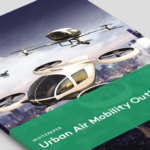In today’s update, cargo movements are being ramped up at Britain’s biggest airport, enable vital medical and food supplies into the UK; Boeing and BAE close plants, GE Aviation sheds 10 per cent of its workforce, and while demand for private jet flights is “booming,” Norwegian Air talks to its creditors.
Heathrow to ramp up cargo movements to 53 per cent to bring in vital supplies
Britain’s Heathrow Airport is to ramp up cargo movements with an expected increase of 53 per cent next week to enable more medical and food supplies into the UK to help tackle coronavirus.
The airport is a vital supply line which already imports 41 per cent of the UK’s pharmaceutical products such as medicines, vaccines and respirators. In 2019, more than 12,000 tonnes of medical supplies such as medicines, vaccines, sanitisers, syringes and respirators travelled through Heathrow.
Next week, cargo movements at Heathrow are forecast to surge by 53 per cent, compared to the weekly average, as the airport prioritises cargo flights with medical supplies which will assist in the fight against COVID-19. The figure is set to increase further as the airport scales up its cargo operation.
Logistics companies have already begun importing key equipment such as COVID-19 testing kits via Heathrow, in preparation for increased demand and the airport is calling on industry to use all available capacity in the fight against COVID-19.
Airport calls on aviation sector to play its part in fight against COVID-19
Heathrow is calling on more airlines and freight companies to maximise the use of the hub airport’s quieter schedule, enabling the aviation industry to play its part in the economic and social fight against COVID-19. Air freight will keep vital supply lines open and help to get time-critical and temperature-sensitive goods, such as medical supplies and food across the UK as the country pulls together to battle the pandemic.
During normal operations, Heathrow is the UK’s largest port by value with 34 per cent of the country’s cargo travelling through the airport. The majority of the cargo (95 per cent) is carried in the belly hold of passenger planes. Whilst passenger travel remains restricted, airports will continue to play a key role in keeping the UK’s supply chain alive for both essential workers and goods. Heathrow is repurposing its operation and scaling up its cargo offering at this difficult time.
Heathrow is also taking a number of steps to assist the airline industry during the pandemic. Steps include supporting slot alleviation – a relaxation of the rules requiring airlines to use their slots to keep them, offering free parking to aircraft grounded as a result of COVID-19 and bringing forward growth incentive payments which have helped to increase cashflow for airlines during a challenging time for the sector.
“Unprecedented time for international community”
Heathrow CEO, John Holland-Kaye, said: “This is an unprecedented time for the international community, with COVID-19 requiring us all to work together, adapt and adopt extraordinary measures to quell the spread of this virus. For the first time in a decade, our airport has additional capacity in its schedule, capacity which we’ve begun to see used to help push vital supplies across the globe to help support frontline teams in the battle against this pandemic.”
“We stand ready to support the country through this crisis. Our intention is to remain open at all times to serve those passenger flights that will continue to operate. And as the UK’s biggest port, we will temporarily increase the number of dedicated cargo flights. These will bring in vital supplies of food and medical equipment to help Britain weather this storm.”
Boeing suspends aircraft production in Washington
Boeing has announced that it will suspend all aircraft production in the US state of Washington by Wednesday.
The closure comes after the death of a Boeing worker as a result of COVID-19 and the confirmation of 29 employees with the disease. Affected employees will continue to be paid during the suspension and Boeing is encouraging employees who can work from home to do so.
Boeing CEO Dave Calhoun said: “This necessary step protects our employees and the communities where they work and live. We continue to work closely with public health officials and we’re in contact with our customers, suppliers and other stakeholders who are affected by this temporary suspension. We regret the difficulty this will cause them, as well as our employees, but it’s vital to maintain health and safety for all those who support our products and services, and to assist in the national effort to combat the spread of COVID-19.”
Boeing will be conducting additional deep cleaning activities at its sites and establishing rigorous criteria for return to work.
United reinstates some flights to Europe and Asia
United Airlines has reinstated some daily international routes to Europe, Asia and Australia in a step back from plans to cut 95 per cent of its capacity.
The Chicago-based carrier says it will operate daily flights from Newark to Frankfurt, London and Tel Aviv, from Houston to Sao Paolo, and from San Francisco to Sydney and Tokyo, in its May schedule.
It will also send a daily flight each from Newark to Amsterdam, Munich, Brussels and Sao Paolo, from Washington-Dulles to London, and from San Francisco to Frankfurt and Seoul between now and the end of March. Those flights are currently scheduled to end by 29 March.
A statement by United said: ”In destinations where government actions have barred us from flying, we are actively looking for ways to bring customers who have been impacted by travel restrictions back to the United States. This includes working with the US State Department and the local governments to gain permission to operate service.”
The move is a reversal from an announcement just a day earlier that it would draw down its international service, leaving just a few essential routes to Mexico and to Guam, as well as Pacific-island-hopper service, in place as long as needed during the crisis.
BAE Systems closes UK sites
BAE Systems has asked all UK-based employees to remain at home unless they are needed for critical customer operations.
The defence, security, and aerospace company has advised employees to work from home where possible as it continues to navigate through the coronavirus crisis.
Chief Executive of BAE Systems, Charles Woodburn, said: “The health and wellbeing of our people is our top priority. In line with the latest Government guidance, our UK based employees are working from home where possible. We’re working closely with our customers to agree which roles remain essential to be delivered at our sites in support of national defence and security.”
Flapper says demand for private jets is “booming”
While the future looks bleak for the airline sector with border restrictions and cancellations wiping out schedules, demand for private jet flights is “booming” according to charter company Flapper.
The company, whose clientele include wealthy individuals and corporations has just announced its partial Q1 2020 results. The company operates in Brazil, the world’s second largest business aviation market.
Flight requests grow by 69 per cent
Flapper’s results highlight a spike in demand caused by COVID-19 virus outbreak. Flight requests in Q1 2020 grew by 69 per cent on a quarter-over-quarter basis, according to the company. The value of quoted flights reached a total of R$ 62.6 million (US$ 13 million).
Ultra long-range business jets and corporate airliners dominated the demand, accounting for more than 50 per cent of all requests. Medevac flights and forced return flights from Europe, US and Peru were popular among foreign brokers and corresponded to more than half of all international requests.
In a market where 99 per cent of all general aviation flights are domestic (Brazilian Institute of Aviation, 2019), such results represented an unprecedented spike in demand, according to Flapper CEO Paul Malicki but he added: “The rapid boost in demand for international flights is short-term and is already flattening for the months of April and May. We’ve seen however, a steadier demand for domestic flights and everything points to a fact that general aviation will constitute one of the only options for passenger transport in the coming months.”
GE Aviation to lay off 10 per cent of its workforce
GE Aviation has said it will lay off 10 per cent of its workforce with up to half of the remaining workers taking leave for 90 days because of the economic slowdown brought on by the coronavirus.
GE CEO Larry Culp said he would not collect a salary for the rest of the year as the company’s aviation unit announced the layoffs. The unit makes engines used in some of the world’s most popular aircraft. Airlines have grounded hundreds of plane and delayed delivery on new aircraft to save money as fears about COVID-19 bring the travel industry to a near halt.
KLM cuts capacity and frequency
KLM will begin its summer season flying with a small fraction of normal capacity.
The Dutch carrier will operate to 57 destinations but is dramatically paring back its frequencies.
A statement by KLM said: “From 29 March until and including 3 May, KLM plans to fly to 25 intercontinental and 32 European destinations. During this period, KLM will fly according to an adjusted schedule, which amounts to about 10 per cent of the normal number of flights.”
Norwegian Air in talks to meet government rescue package criteria
Norwegian Air is in talks with leasing companies, including DP Aircraft, and other creditors in a bid to meet the Norwegian government’s criteria for a rescue package.
Company spokesman Lasse Sandaker-Nielsen told Reuters news agency: “We are in dialogue with leasing companies and other creditors in order to meet the government’s requirements to secure necessary liquidity in a time where most of our fleet is grounded due to the coronavirus situation.”
DP Aircraft on Monday said a unit of Norwegian had failed to make a scheduled payment.
Singapore Airlines cuts capacity by 96 per cent
Singapore Airlines is cutting 96 per cent of capacity originally scheduled up to the end of April.
The move will result in the grounding of around 138 SIA and SilkAir aircraft out of a total fleet of 147. Low-cost carrier Scoot will also suspend most of its network, resulting in the grounding of 47 of its fleet of 49 aircraft.
Scoot was set up to diversify SIA Group’s network, spread its risks and cater to a wide range of passenger and market segments.

